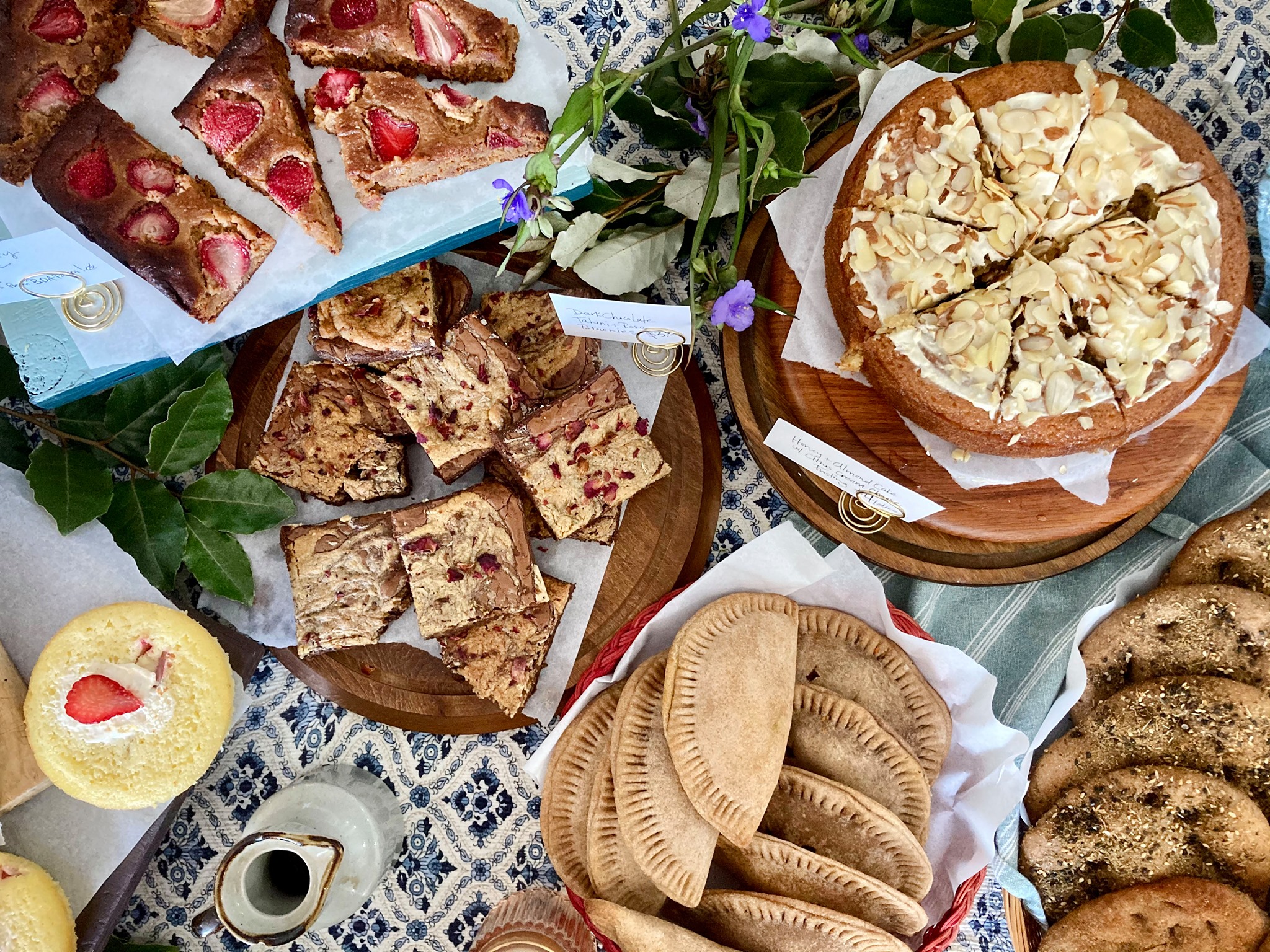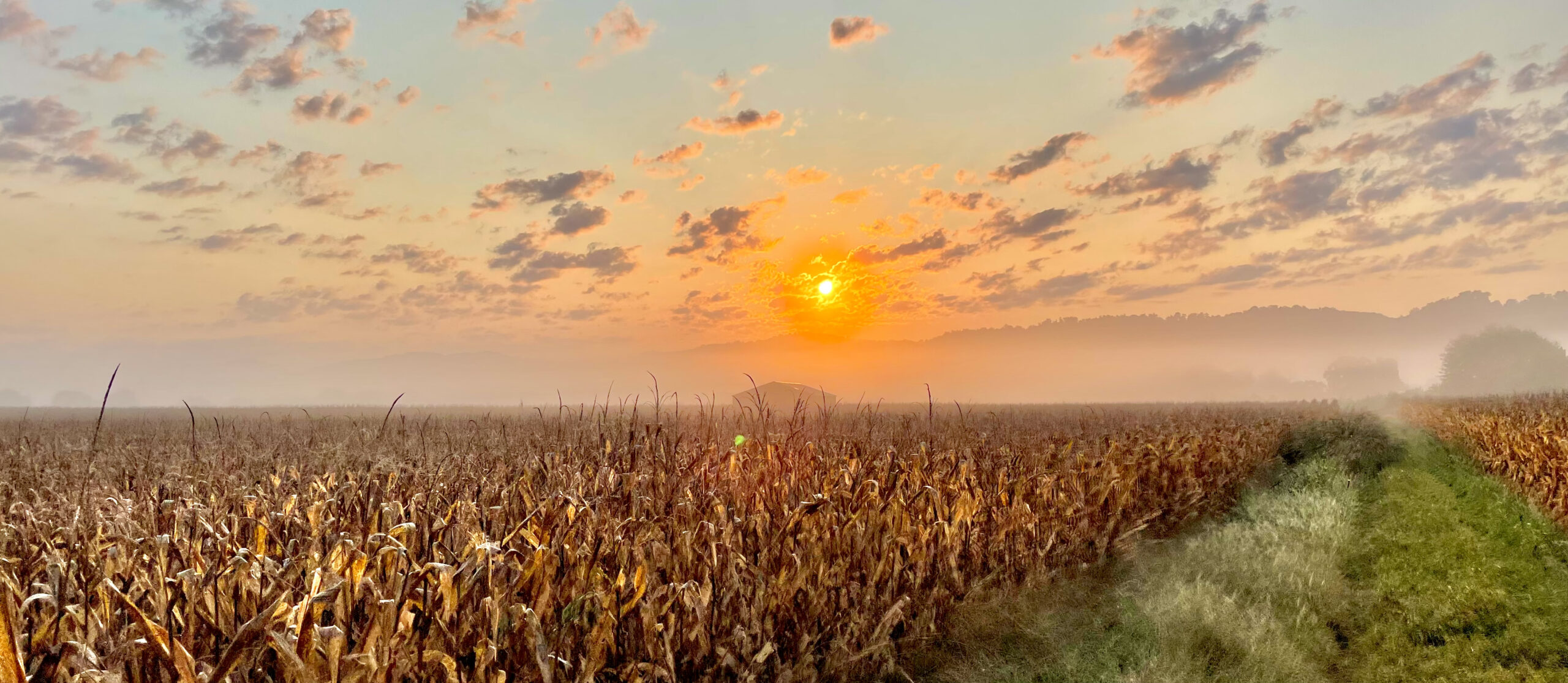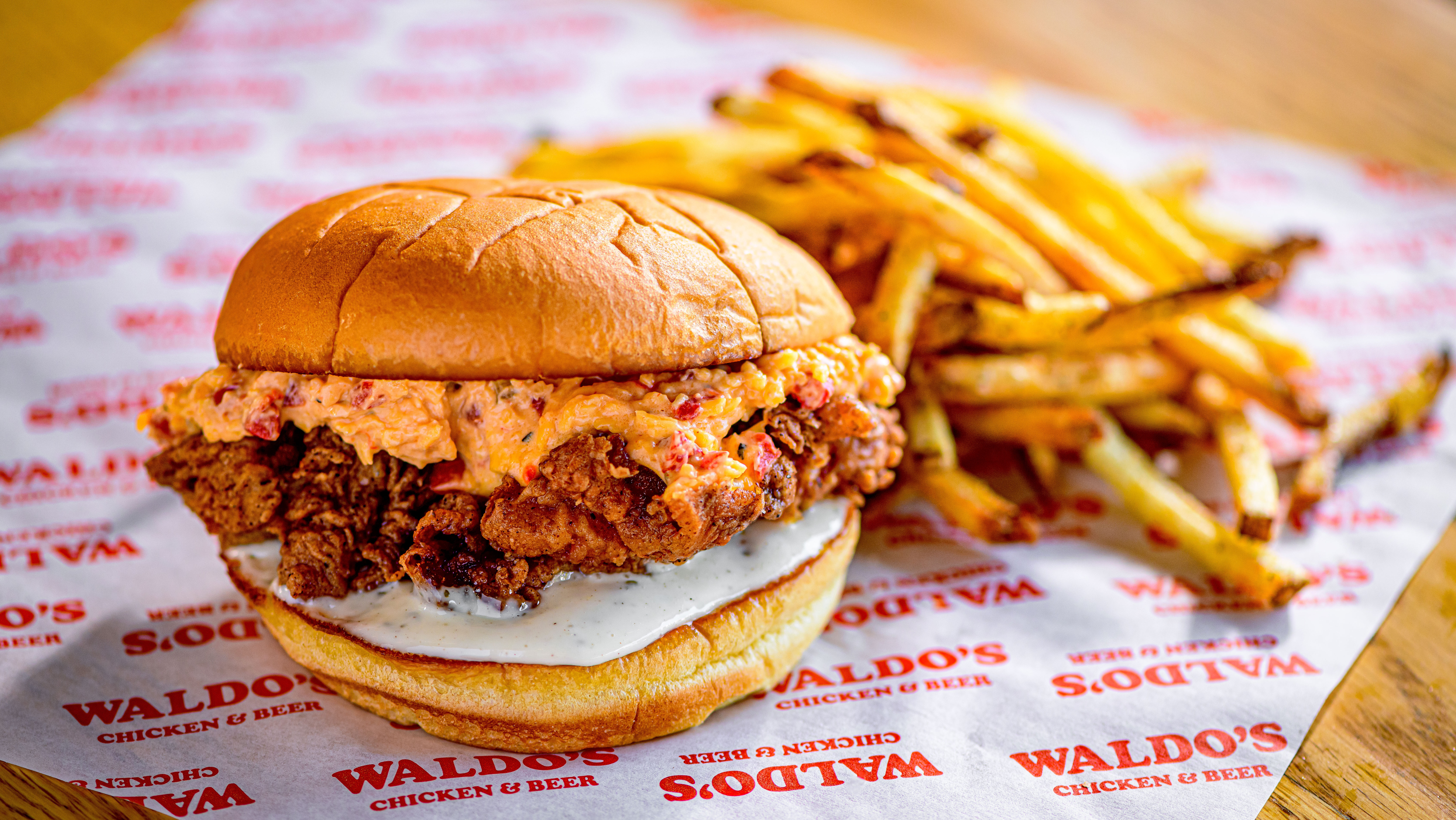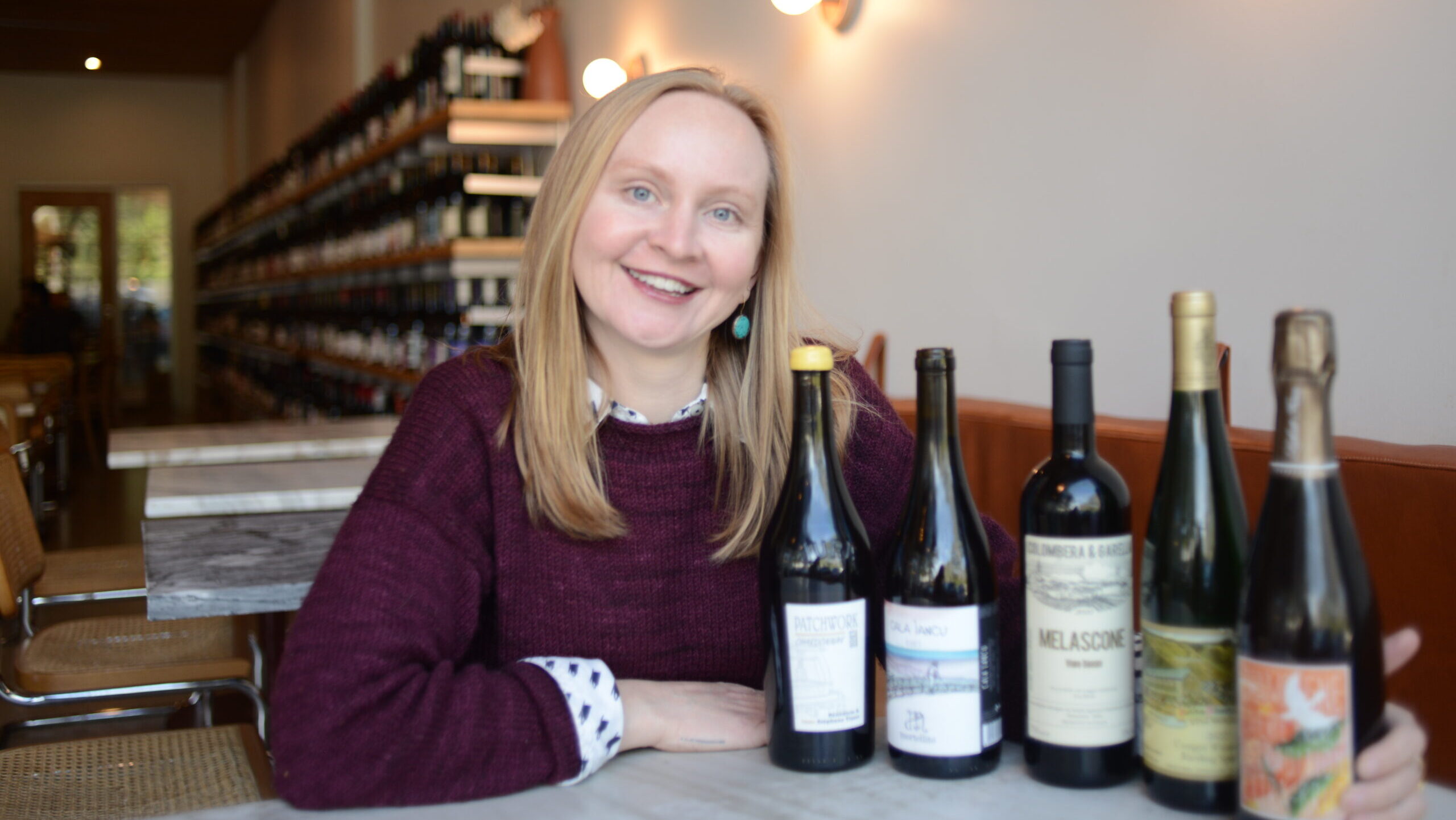At a commercial kitchen inside an 1890s Victorian home in downtown Greensboro, Sarah Cole reconnects with how her ancestors cooked – taking what grows nearby and turning it into something both nourishing and memorable. But the culinary influences are transcontinental at her catering, event, and pop-up business, Abadir’s.
She grew up in Demopolis and her father’s family is rooted in the South. Her mother is from Egypt; as Christians her family fled in the 1980s amid religious persecution.
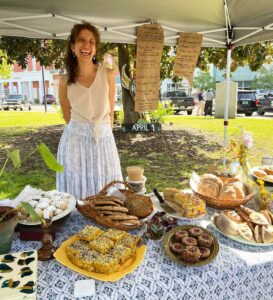
(Abadir’s/Facebook)
“It’s a mix of north African and my more wholesome version of Southern fare,” Cole says of the food she makes at Abadir’s, which is her mother’s family name. “Some of the things I do are traditional but it always has my twist to it.”
In addition to catering and private dinners, Cole also sets up a pop-up stand at Saturday gatherings like the Birdsong Farmers Market in Birmingham (her next visit is May 20) and events like Rooster Day in Demopolis. She publishes a schedule on her website and social media. Catering contact information also is on Abadir’s website.
While the catering end allows Cole to explore a wide range of dishes, she is limited mostly to baked goods at the pop-up markets because they are more portable. Standards include Egyptian and Middle Eastern cookies made with shortbread or with sesame paste, prepared using natural sweeteners like honey.
Each pop-up also features a special cake, extravagantly decorated Southern-style but toned down in the sweet department to align with Cole’s dedication to healthier cooking.
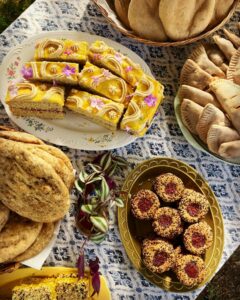
(Abadir’s/Facebook)
“I never saw myself as a cake decorator or designer but it evolved into this thing I really love doing,” she says. “I always have a cake of the day with whatever flavors are in season or if I’m inspired by the weather. It really depends on my mood.”
On the savory side are Abadir’s homemade multi-grain sourdough pita pockets stuffed with veggies and herbs that she either grows in her own garden or sources from local farmers who follow regenerative and organic agricultural practices.
Sandwiches, using house-made Lebanese-style talamee bread, also feature seasonal vegetables and sauces. Abadir’s pop-up stand usually includes northern African soups and salads.
They’re vegan – no meat, cheese or other dairy – not because Cole is a vegan herself but because she wants to use her food to promote better diets, and eating more like our ancestors.
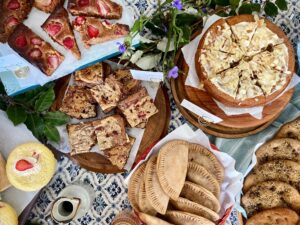
(Abadir’s/Facebook)
“I call myself a ‘flexitarian’ because I do eat meat and I do eat a little bit of dairy,” she says. “My food philosophy is very simple. I really just believe in eating whole foods that are good for the mind, body, and spirit and are good for the environment.”
Cole says she has fond memories watching her mother periodically make Egyptian food, and sharing the stove with her immigrant grandfather, a talented cook. Family visits to a maternal aunt’s home in New Jersey were celebrated with trays of Egyptian treats.
“Some of my best childhood memories are centered around food,” she says. “I loved those super-heavy Southern dishes and desserts, and I love the connection that I have to food from my mom’s side of the family.”
But she didn’t start cooking seriously until her mid-20s, amid a general lifestyle change focused on exercise and healthier eating. She built a repertoire from the food she knew best, reconstructing and revamping childhood favorites both Arab and Alabamian.
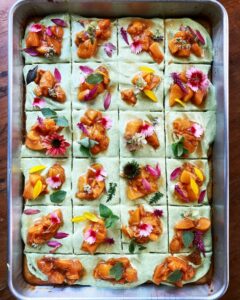
(Abadir’s/Facebook)
“I’m an intuitive cook,” Cole says. “I would ask mom for recipes – she doesn’t have recipes. So, I’m glad I watched her. Every once in a while, I would have to ask her about a particular spice. But I can remember pretty much all the ingredients and the process.”
Cole and a partner are steadily renovating Abadir’s Greensboro base, which had previously been divided into a duplex with two kitchens. But, she says, she has no plans to open a restaurant there.
Instead, it will host Abadir’s events. The second kitchen will be available for other chefs to hold one-off special dinners there. It also will be open for educational programs, says Cole, founder and executive director of a non-profit focused on food security, the Black Belt Food Project.
“I’m looking at grab-and-go meals. If it’s a cold-meal option, you can buy those meals using food stamps and we do live in a low-income community,” she says. “The most important part of it for me is to make sure what I do is good for the community and accessible to the community.”
[/fusion_text][/fusion_builder_column][/fusion_builder_row][/fusion_builder_container]
